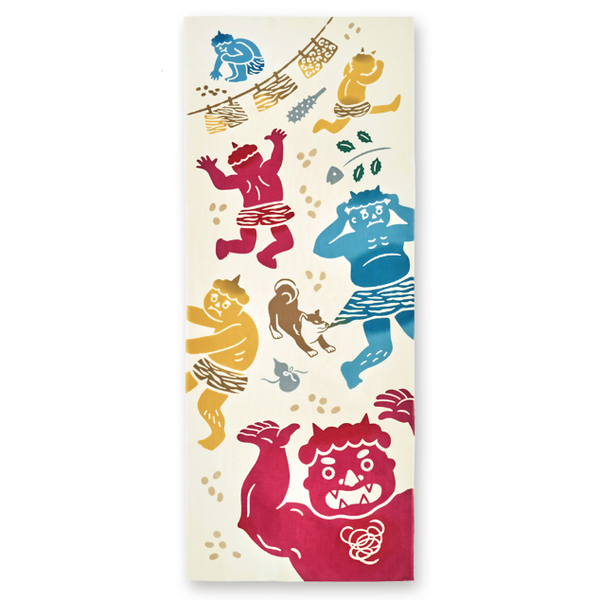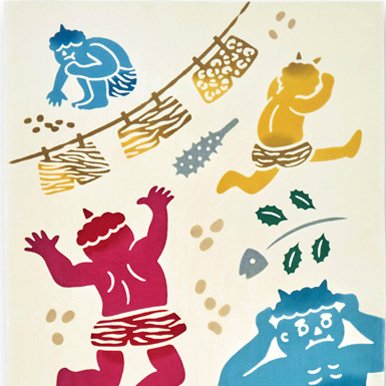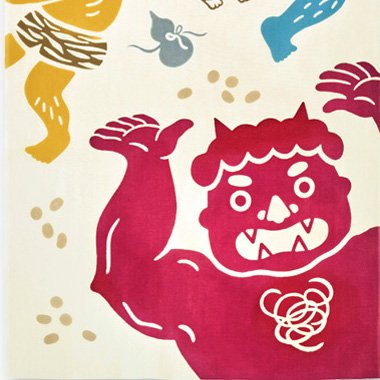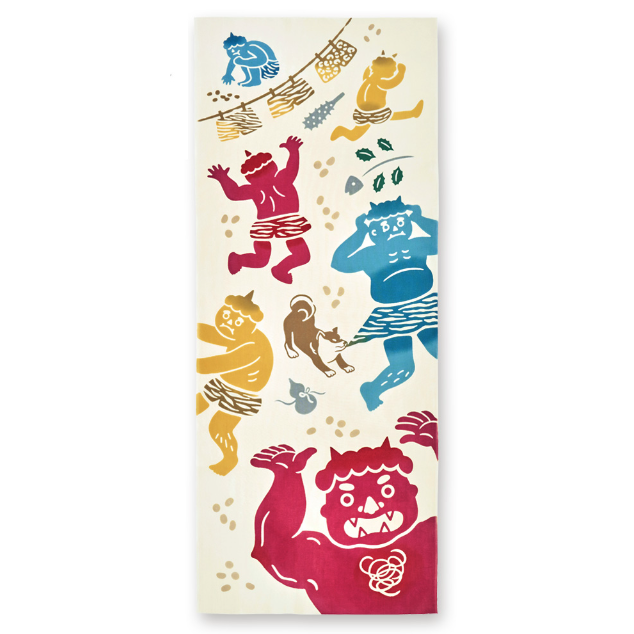



The Kenema Tenugui Setsubun Demon is a traditional Japanese hand-dyed cloth that features designs inspired by the Setsubun festival.
Setsubun marks the transition from winter to spring and involves rituals aimed at driving away evil spirits (oni) to bring in good fortune. The design on this Tenugui likely depicts elements associated with this celebration, such as oni (demon) imagery and the symbolic act of bean-throwing used to expel the demons.
Tenugui are versatile, rectangular cotton cloths used in Japan for various purposes, including as towels, wraps, headbands, or decorative pieces. The Kenema Tenugui are crafted using the chū-sen dyeing technique, a method that is predominantly performed by hand. This technique creates distinctive patterns and textures, with natural variations in the dye that contribute to the uniqueness of each piece.
Kenema Tenugui hand-dyed cloths are appreciated not only for their practical uses but also for their cultural significance and artistry. These Tenugui serve as a tangible connection to Japanese traditions, making them both functional items and beautiful works of art.
The oldest Tenugui was found in an ancient tomb dating back to AD 300. It became popular among the common people when samurais started using Tenugui under their kabuto (helmets) to absorb sweat from the Kamakura period to the Edo period. During the Edo period, Tenugui gained widespread popularity, and people became interested in their designs. Women used them to wrap their hair, Kabuki actors and sumo wrestlers made personalized Tenugui as business cards, and samurais used them to wrap their swords. Tenugui remains a beloved part of traditional Japanese culture and is still appreciated today.
Tenugui can be used in many different ways. Here are some suggestions:
- Use as a towel, cover, or bandana.
- Use to wrap items such as glass bottles.
- Use to wrap greeting cards or presents.
- Hang on the wall as an interior decoration.
- Use as a sheet when having a picnic outdoors.
The cloth becomes softer the more you use it, and water absorption also improves.
The ends of Tenugui are not sewn, allowing them to dry easily and quickly when hung (it is recommended not to use a dryer).
Because Tenugui can become discolored easily, please wash your hands often when first handling a Tenugui.
Use the Tenugui only after it has completely dried.
- Size: Approx. 35 x 90 cm
- Material: 100% cotton
- Note: Chū-sen dyeing is mainly done by hand and is a technique that is prone to bleeding and unevenness, so please enjoy it as a unique style.
- Made in Japan
Earn rewards on every purchase
Log in to receive JT points and access exclusive rewards and discounts.
